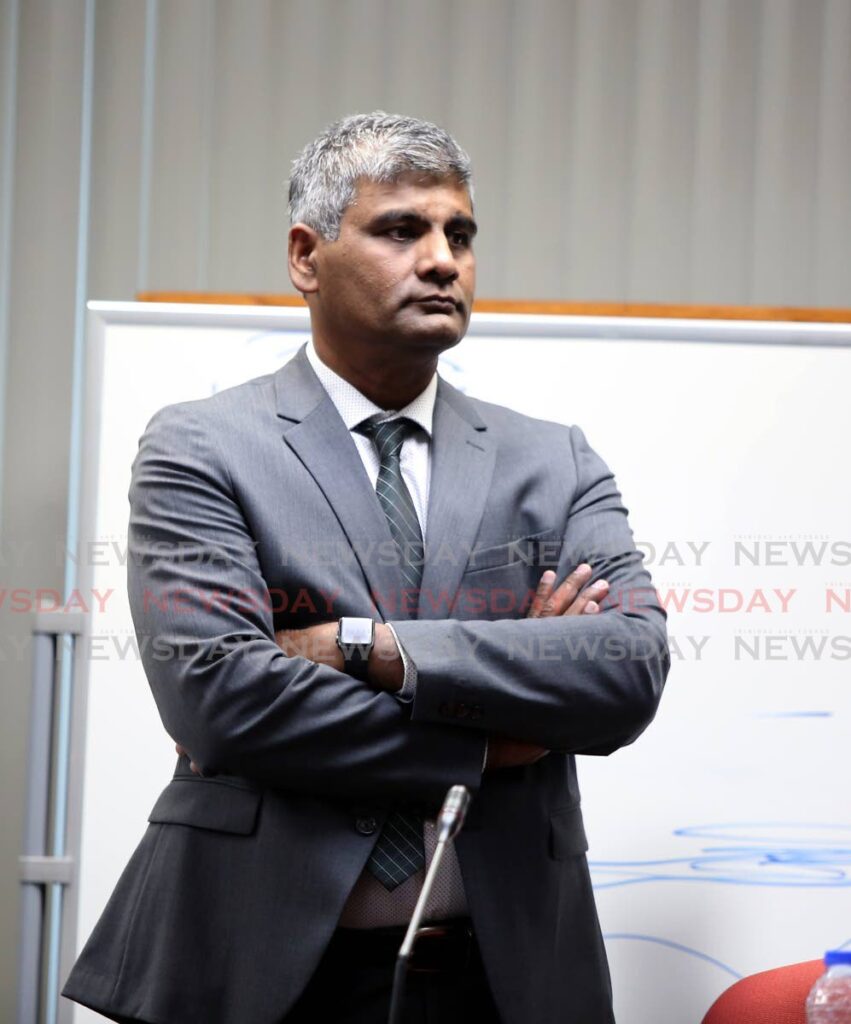Paria's HSE manager – '24 hrs for rescue effort, reasonable

PARIA'S HSE manager Randolph Archibald came under fire on Thursday for not giving enough urgency to rescue attempts to save four divers who were trapped in a pipeline in Paria’s Berth 6. He told the Commission of Enquiry into the incident on February 25, 2022, that he believed the men could survive for up to 24 hours in the pipeline.
During questioning by CoE chairman Jerome Lynch KC, Archibald said he attached no time frame to the attempt to rescue the men.
“I didn’t think that within the first 24 hours was unreasonable to continue with rescue efforts. I didn’t know the size or number of the air pockets present and no one tried to calculate how much air would have been left in the pipeline following the Delta P (differential pressure) event. I didn’t make a determination on the 24-hour period but continued to hope they would remain alive for that time.”
Archibald, who formed part of the incident command team (ICT), said when he arrived on the compound following the incident, he was told that people were diving into the pipeline and advised that it was dangerous and it should be stopped.
CoE counsel Ramesh Lawrence Maharaj noted that Archibald had initially advised the team that in order to attempt a rescue, experienced divers with communication devices, a tether, and air. He asked why once these things were present, the company had not attempted to do a rescue.
Archibald said he was told by acting technical lead Catherine Balkissoon, who was present on Berth 6, that no plan had been presented for a rescue dive.
“I didn’t know that there were any divers willing to traverse the horizontal part of the line. I had communication from Balkissoon that there was no plan. We didn’t know that Michael Kurban had gone into the pipe until after he’d done it, and he was only able to get in 10 feet into the horizontal part of the pipeline. This was an effort to go further, and none came forward to say I’m willing to dive. Willingness to dive might have been enough to dive but not to effect a rescue. The willingness was the main impediment.”
Lynch asked whether the ICT had gone to speak directly with the LMCS and freelance divers present directly to find out if they were willing to dive. Archibald replied that they sought to deal with the LMCS representatives, not freelance divers.
“There has to be a leader to the team. If Beddoe had stepped forward we would have sat down with them and asked for a dynamic risk assessment right there, but that didn’t happen.”
Maharaj listed the four companies which were called upon to determine whether a rescue attempt could be made, their contact times, the times they arrived and left the compound, and their responses to the request made by the ICT. He also listed the other efforts made by Paria to determine the conditions present in the pipeline, including the use of two different cameras and a crawler.
Lynch asked whether he thought having the companies on standby and them taking hours to get there was satisfactory and showed urgency.
Archibald said he turned away no one who could help but understood that mobilising on a Friday evening during Carnival was difficult, and believed they came as quickly as they could.


Comments
"Paria’s HSE manager – ’24 hrs for rescue effort, reasonable"